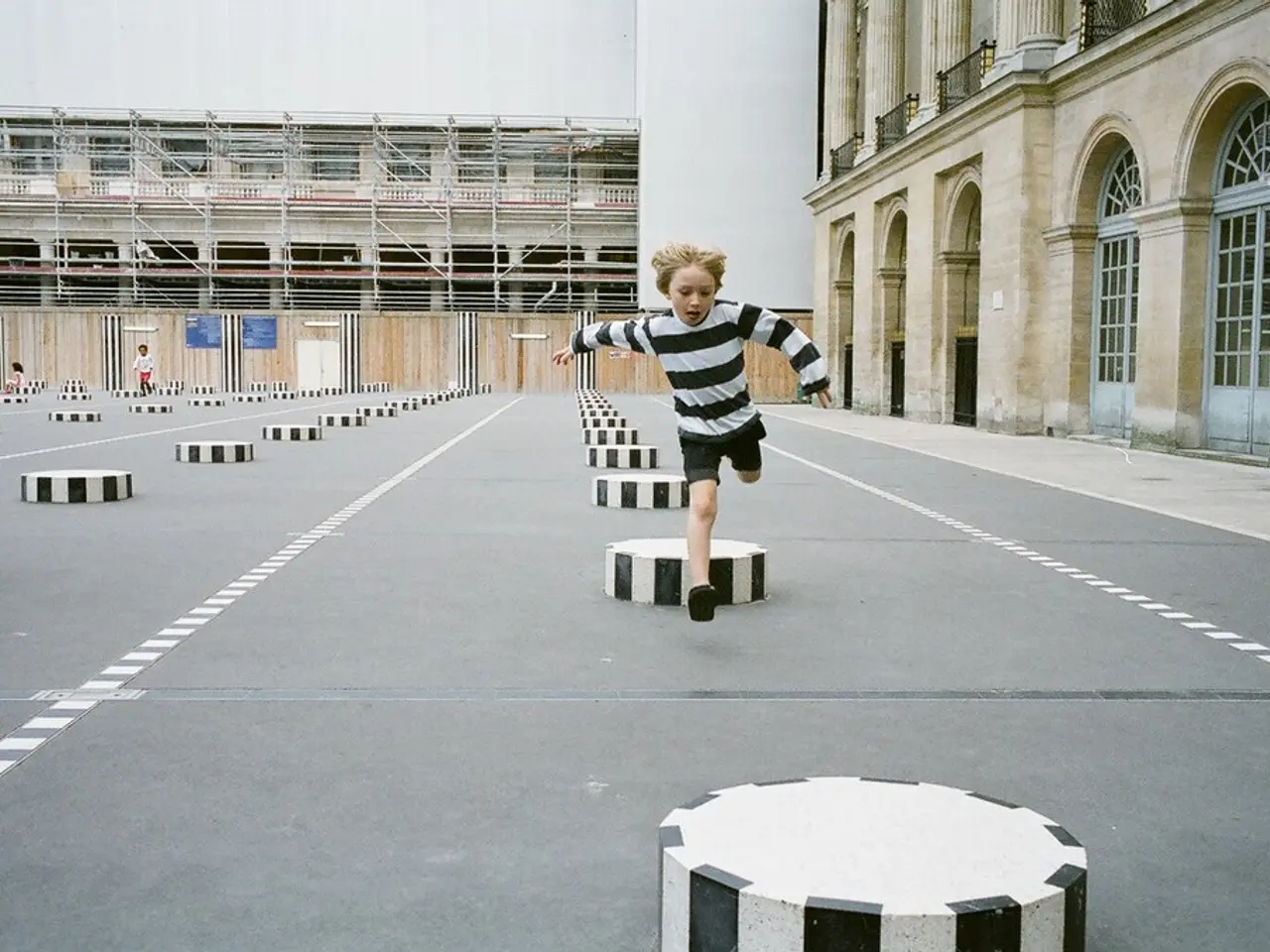Investigating Interactive Education at Museo Dei Bambini Lecce
Play-based learning, a method that emphasises child-led, imaginative play, is gaining recognition as a powerful and multidimensional approach to early childhood development. This approach, which is championed by institutions such as the Harvard Center on the Developing Child, The LEGO Foundation, and the American Academy of Pediatrics, integrates cognitive, physical, emotional, social, and language development, setting the foundation for lifelong learning and well-being.
At the heart of play-based learning is the belief that play isn't a distraction from learning; it is learning. This philosophy is beautifully embodied in Museo dei Bambini, a museum that uses play as its curriculum. Here, children are encouraged to engage in physical, social, and unstructured play, fostering an environment where they can learn and grow.
One exhibit, the Domino Drop, teaches children about force, balance, and chain reactions, making it a form of early engineering. Another, the Captain's Wheel, encourages pretend play, role understanding, language practice, and empathy development. The Pull & Lift exhibit promotes understanding of mechanics, force, and tension through physical activities. Meanwhile, the Funny Faces exhibit allows children to explore facial cues, emotions, and symmetry.
Research supports the benefits of play-based learning. Cognitive Development is stimulated as play fosters problem-solving, critical thinking, creativity, and abstract thought. Imaginative and sensory play strengthen neural connections essential for learning readiness and academic success. Active play enhances gross and fine motor skills, contributing to overall health, coordination, and physical confidence.
Through role-playing and storytelling, play helps children express and manage emotions, develop empathy, and practice emotional regulation in a safe environment. Group play teaches social skills such as communication, sharing, cooperation, turn-taking, and conflict resolution, which are crucial for healthy relationships and adapting to social norms.
Play provides natural opportunities for developing vocabulary, narrative skills, and language use, whether in solitary play dialogue or social interactions. In play-based environments, children develop stronger oral language skills as they describe their actions, negotiate with peers, and tell stories.
Play-based learning is child-initiated, process-oriented, open-ended, and joyful. It builds brain pathways, emotional strength, and social skills without losing a child's sense of wonder. A 2020 study in Nature Human Behaviour found that play improves cognitive flexibility and learning adaptability.
For adults, supporting play-based learning at home can be as simple as giving children time, space, and permission to follow their ideas. Resources from organisations like the Harvard Center on the Developing Child, The LEGO Foundation, AAP, and Play and Learning articles offer valuable insights into the importance of play-based learning.
In conclusion, play-based learning is a powerful, evidence-based approach that integrates various aspects of development, supporting children's readiness for lifelong learning and well-being.
- The museum, Museo dei Bambini, is a testament to the belief that play-based learning can integrate various aspects of development, as it uses play as its curriculum to foster physical, social, and unstructured play for children's learning and growth.
- Engaging with exhibits like the Domino Drop, Captain's Wheel, Pull & Lift, and Funny Faces at Museo dei Bambini offers opportunities for children's learning in areas such as cognition, early engineering, mechanics, and emotional expression, all essential for personal growth, education, and self-development.
- Supporting play-based learning at home can involve giving children time, space, and permission to follow their ideas, and resources from organizations like the Harvard Center on the Developing Child, The LEGO Foundation, AAP, and play-focused articles can provide valuable insights into this evidence-based approach to early childhood education and home-and-garden lifestyle.




